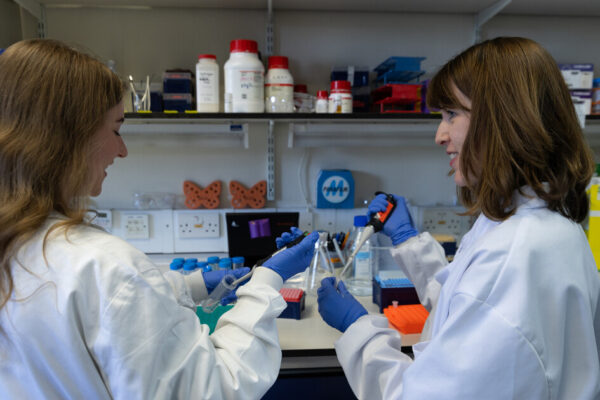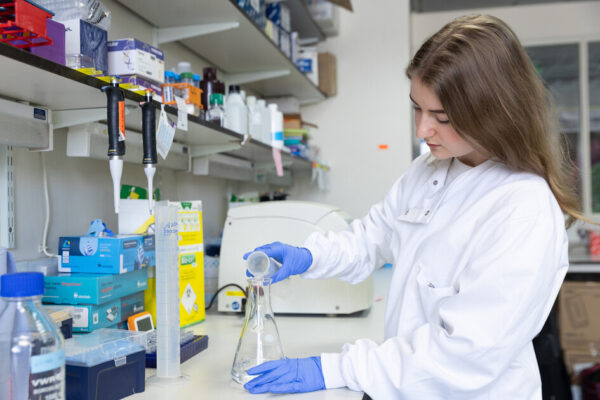Yesterday, Fulcrum Therapeutics announced encouraging results from its ReDUX4 Phase II clinical trial of losmapimod in patients with facioscapulohumeral muscular dystrophy (FSHD).
Encouraging results from FSHD clinical trial

The results of the trial showed that people taking the drug have a slowing of disease progression and improved function compared to people who received placebo. Fulcrum Therapeutics announced these results at the FSHD Society’s annual International Research Congress.
What causes FSHD?
FSHD is caused by unusual expression of a gene called DUX4 in skeletal muscle. Normally, DUX4 protein controls the expression of other genes during the early development of embryos, after which time the DUX4 gene is silenced; it no longer works. In people with FSHD, the DUX4 gene is unsilenced owing to a change in the gene. This change causes muscle cells to die and be replaced by fat, which leads to muscle weakness.
What was the study looking at?
Phase II clinical trials aim to assess the safety and effectiveness of a treatment. Because none of the people in the trial experienced any drug-related serious adverse events and the drug was generally well tolerated, it seems to be safe. losmapimod is also being studied as a potential treatment in other conditions and over 3,500 patients have now received it.
Tests in the ReDUX4 trial included MRI scans (to measure fat content within muscles), functional studies (to measure how people moved) and patient-reported measures (to see if the people on the trial noticed any changes in their daily lives). The researchers also looked at muscle biopsies.
Researchers extended the study because of the COVID-19 pandemic, which meant they could carry out all the tests that they needed to without stopping the trial.
What did the study show?
The researchers looked at muscle biopsies to see if losmapimod changed DUX4-driven gene expression – this was the primary end point of the trial. No differences were seen between people given the drug and those on placebo. The company suggests that this might have been because of technical and biological variables.
People who received the drug showed clinically relevant benefits to the structure and function of their muscles and reported that they experienced improvements unlike those treated with placebo. Results showed that there was less fat infiltration in muscles in people who had received losmapimod, and that they felt better.
While the main research question of the trial – known as the primary end point – was not met, several of the other – secondary endpoints – showed statistically significant changes.
Hope for the future
We know that this news will be very exciting for people living with FSHD. This is the first clinical trial for this condition that has shown that disease progression can be slowed down.
We know that people with FSHD will be hoping that they can access this drug through the NHS soon. However, before this can happen the company will need to have discussions with the UK regulators – The Medicines and Healthcare products Regulatory Agency (MHRA). They will also need to speak to the UK organisations that recommend whether a treatment is cost-effective to the NHS – NICE and the Scottish Medicines Consortium (SMC).
The company said yesterday that it will meet with the FDA in the USA in the second half of 2021 to discuss the regulatory path for losmapimod for FSHD. We will be reaching out to the company, the MRHA, NICE and SMC to find out what the next steps will be for the UK and will let you know when we have heard more.
You can read more about the trial outcomes on the Fulcrum Therapeutics website here.


